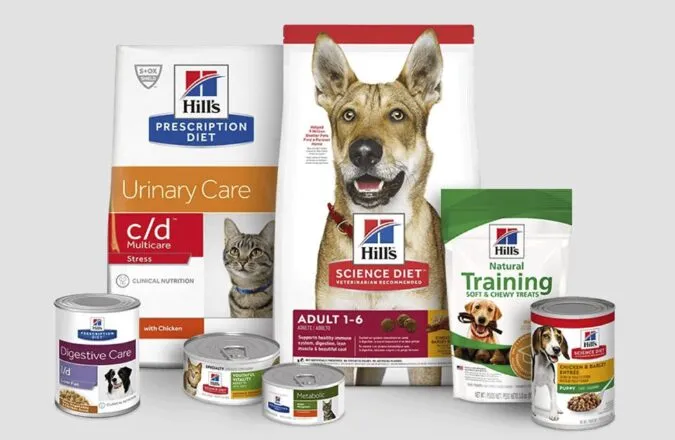Hill’s Dog Food has long been a staple in the pet nutrition world, frequently recommended by veterinarians for its science-backed formulas. If you’re searching for a Hill’s Dog Food Review, this comprehensive breakdown covers the brand’s history, product lines, ratings, pricing, and more to help dog owners make informed choices. With a focus on therapeutic and everyday nutrition, Hill’s stands out for addressing specific health needs while supporting general wellness.
Founded in 1907 in Kansas by Burton Hill as an animal feed company, it pivoted to pet food in the 1930s. A pivotal moment came in the 1940s when veterinarian Dr. Mark Morris Sr. partnered with Hill’s to create a diet for a guide dog suffering from kidney disease. This collaboration birthed the Hill’s Prescription Diet line, pioneering therapeutic pet food for conditions like kidney issues, obesity, allergies, digestive problems, and joint health. These vet-prescribed formulas are clinically tested for targeted benefits.
In 1976, Colgate-Palmolive acquired Hill’s, fueling expansion and the launch of Hill’s Science Diet, designed for balanced nutrition across life stages, breeds, and needs. Hill’s maintains strong ties with veterinary schools, offering education and resources that bolster its reputation. For more on top dog food options, check out our guide to my dog food.
 Hill’s Dog Food Review
Hill’s Dog Food Review
Is Hill’s Good Dog Food?
Hill’s offers two main lines: Prescription Diet and Science Diet, each serving distinct purposes.
Hill’s Prescription Diet features 35 dry and 39 wet recipes, available only with a vet prescription. These aren’t rated by standard criteria like those from Dog Food Advisor, as they’re formulated for specific medical conditions with tightly controlled nutrients. Pet nutritionist Laura Ward notes, “These recipes prioritize micronutrients suited to veterinary needs, backed by scientific studies. They’re essential when regular foods won’t suffice for dogs with health challenges.”
Ingredients may differ from over-the-counter options to meet precise therapeutic levels, making them a go-to for vets managing urinary health, skin issues, or mobility problems. For non-prescription alternatives targeting urinary wellness, explore best non prescription dog food for urinary health.
Hill’s Science Diet includes 38 wet recipes (average 2-star rating) and 47 dry ones (average 2.5 stars). While variety is a plus with options for different proteins and life stages, some formulas have lower protein content and controversial additives like menadione (vitamin K source), beet pulp, powdered cellulose, caramel color, corn derivatives, sodium selenite, and brewer’s rice. These provide bulk but limited nutrition.
Ward explains, “Science Diet emphasizes precise nutrient control over fresh or herbal ingredients trending in the market.” Ratings range from 1 to 4 stars, so check specific recipes for your dog’s needs.
Hill’s Puppy Food Options
Puppies require tailored nutrition for growth, bone development, muscle building, and immune support. Hill’s excels here with dedicated puppy formulas.
Hill’s Science Diet Puppy offers eight dry recipes rated 3.5 to 4.5 stars (overall 4 stars), suited for small, medium, and large breeds. These include DHA from fish oil for brain and eye health, providing balanced calories and nutrients during rapid growth phases.
Hill’s Prescription Diet Puppy has one dry option: Derm Complete Puppy Rice & Egg, designed for sensitivities. It strengthens skin barriers against irritants, reducing itching, scratching, and redness—ideal for pups with allergies or environmental reactions.
Real-world experience from pet parents shows these foods support healthy weight gain and shiny coats when fed per guidelines. For puppy-specific recommendations, see our review of beef pro puppy.
Hill’s Dog Food Pricing
Costs vary by line, formula, and size, but here’s a typical range based on popular products:
Hill’s Science Diet:
- Small bags (4-5 lb): $15–$25
- Medium bags (15-20 lb): $40–$60
- Large bags (30-35 lb): $65–$90
Hill’s Prescription Diet:
- Small bags (4-8 lb): $35–$55
- Medium bags (16.5 lb): $75–$100
- Large bags (27.5-30 lb): $90–$130
Prescription foods cost more due to specialized ingredients and research. Always factor in your dog’s size, activity level, and health—consult a vet for cost-effective plans.
Recall History and Safety
As of November 2025, Hill’s Dog Food has no recorded recalls. This clean history underscores their quality control and rigorous testing, a key trust factor for pet owners.
Final Thoughts on Hill’s Dog Food
Hill’s shines in veterinary-endorsed nutrition, particularly Prescription Diet for therapeutic needs and Science Diet for everyday care, though ingredient scrutiny is advised for optimal choices. Puppy formulas earn high marks for growth support. With no recalls and transparent science, it’s a reliable brand—but pair with vet advice for your dog’s unique profile.
Ready to choose? Compare with other options like taste of the wild ancient grains salmon and monitor your pup’s response.
References:
- Dog Food Advisor reviews and ratings.
- Insights from pet nutritionist Laura Ward, BSc Animal Science.
- Hill’s Pet Nutrition official history and product data.
